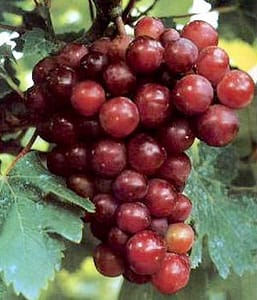Research studies have previously identified the power of grape seed extract (GSE) as anti-oxidant, anti-hypertensive and anti-inflammatory. It is so well established that it is now being evaluated in seven current clinical trials.
But attention may soon shift to GSE’s anti-cancer potential as recent groundbreaking human studies have just found it possesses remarkable protective effects against three major cancers: skin (squamous cell carcinoma) and prostate and blood (hematologic) malignancies. 
Even more remarkable is that this breakthrough in the science of natural medicine was not due to the foresight of medical practitioners who designed the trials, but to the patients who took GSE, on their own, as a nutritional supplement to support general health.
74% Risk Reduction of Skin Cancer
A study published in June 2011, conducted in Northern California on over 800 people (830) to test the effects of general supplement use on the development of squamous cell carcinoma (the second most common skin cancer). The supplements in use included vitamins A, C, D, E, multivitamins and grape seed extract. Only the users of grape seed extract experienced a significant reduction in risk of squamous cell carcinoma, by an amazing 74%! Multivitamin users did experience a 29% reduced risk. But according to the researchers, this finding was only borderline statistically significant.
62% Risk Reduction of Prostate Cancer
A large study, involving 35,239 men living in Washington State, them beginning in 2000 in the VITamins and Lifestyle (VITAL) cohort. The participants, were between 50-76 years, answered detailed questionnaires about specialty supplement use for the decade prior to the study’s launch. Prostate cancer risk was measured after an average follow-up time of 6.1 years.
The results showed grape seed extract to be the stand-alone winner. Men, who used an individual grape seed extract supplement with “high average use” over 10 years, experienced a significant 62% risk reduction of prostate cancer compared to non-users, while average users of GSE supplements experienced a 41% risk reduction.
None of the other supplements observed in this study (CoQ10, fish oil, garlic pills, ginkgo biloba, ginseng, glucosamine, chondroitin or saw palmetto) were seen to offer protection against prostate cancer. Note, however, that green tea was not one of the supplements considered. This study was published in May 2011.
43% Risk Reduction of Hematologic Cancers
The same VITAL cohort as used for the prostate cancer study was also used to assess risk of hematologic cancers (involving blood, bone marrow or lymph nodes). The population was expanded to include women, for a total of 66,227 participants. Those who had ever used grape seed supplements experienced a 43% risk reduction for hematologic cancers. This was only matched by those with a “high use” of garlic, who saw a 47% reduction of risk. No other supplements offered significant protection.
Grape seed extract has already demonstrated the ability to destroy to breast cancer, colon cancer, glioblastoma, and NSC lung cancer cells in laboratory studies. But the three study results on human populations given above provide a dramatic leap forward for the science backing GSE as an anti-cancer supplement.
It is interesting that interesting that non e of the studies any media attention. Until then, the latest findings on GSE make a compelling case for its consideration in any program or supplement regimen meant to reduce cancer risk.
Sources:
http://www.clinicaltrials.gov/ct2/r…
http://www.sciencedirect.com/scienc…
http://www.ncbi.nlm.nih.gov/pubmed/…
http://www.ncbi.nlm.nih.gov/pubmed/…
http://www.ncbi.nlm.nih.gov/pmc/art…